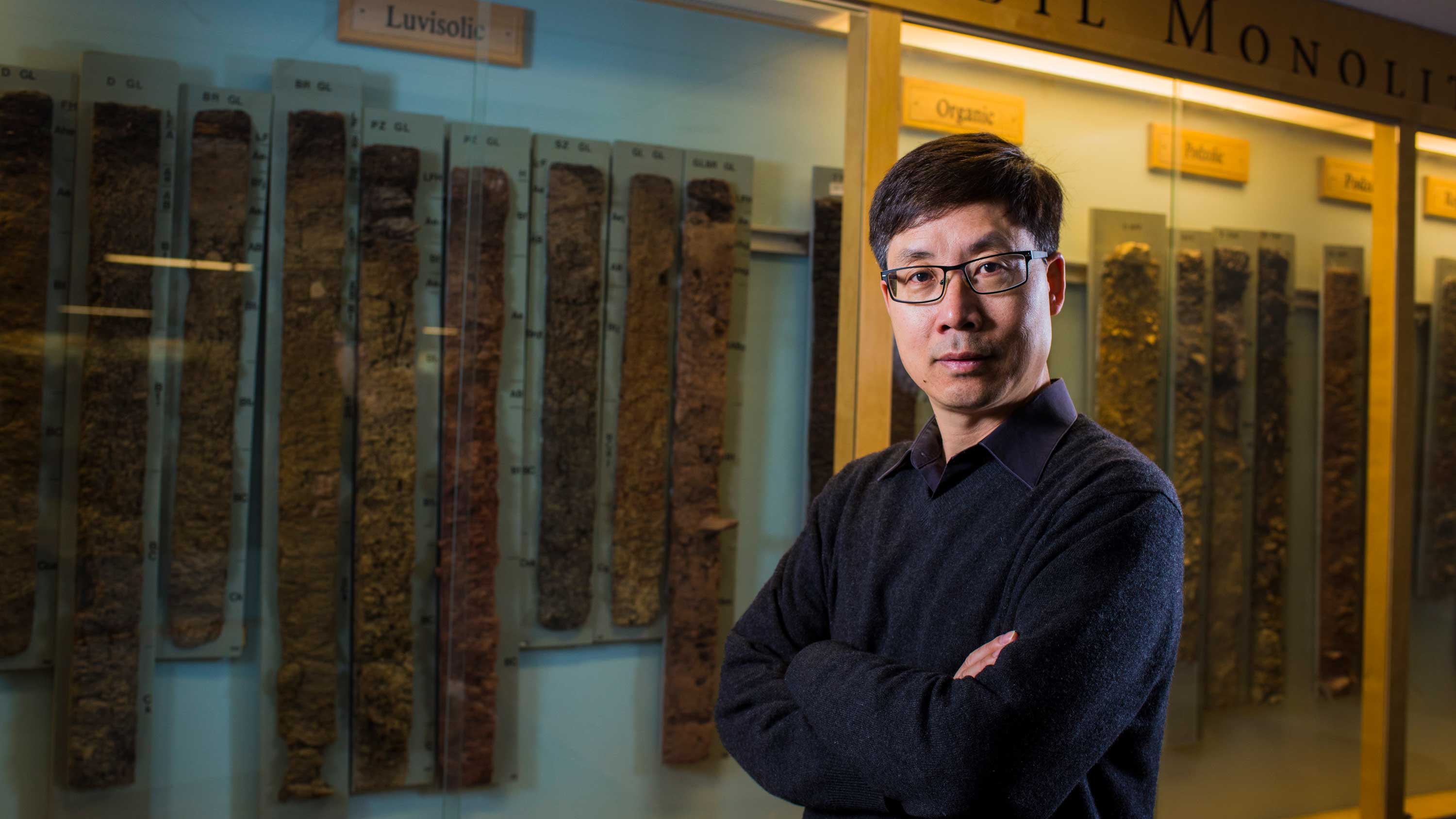As global climate change and biodiversity loss press down on the planet, University of Alberta soil scientist Scott Chang believes one of the most important ways to combat the effects is through the power of plants.
Preserving plant diversity and enhancing valuable processes like photosynthesis mean “more productive ecosystems” of biomass or organic matter like tree trunks and leaf litter, says Chang, a professor in the Faculty of Agricultural, Life & Environmental Sciences (ALES).
“Some of that organic matter will be retained in the soil, which lowers the release of carbon and nitrogen into the atmosphere in the form of potent greenhouse gases.”
Working to better understand the importance of preserving plant biodiversity, Chang and his colleagues have produced several important studies looking at how plant mixtures affect soil health, the role of Canada’s natural forests in storing carbon and nitrogen, and how trees planted on agricultural land can increase carbon sequestration.
Collectively, the work shows the benefits plants can have for the environment over time, and can help guide effective policy to protect their biodiversity, Chang suggests.
“We can help develop protection measures in existing ecosystems, or increase biodiversity when new ecosystems are being established, such as through reforestation programs.”
The work has also helped land Chang on Clarivate’s Highly Cited Researchers list for the second year in a row.
The list identifies authors of multiple scientific papers ranking in the top one per cent in the world by citations for their field and publication year over the last decade, showing significant influence among their peers.
Having highly cited studies “helps establish linkages with other researchers as well as industry,” Chang notes. “Local, national and international collaboration with diverse groups is important to expanding the reach and impact of research.”
Cited more than 19,000 times since 1995, according to Clarivate’s Web of Science platform, Chang is joined on the list for the first time by wildland fire scientist Mike Flannigan, also based in ALES. Named to the list again this year are ALES food microbiologist Michael Gänzle and nutrition researcher Carla Prado, along with Faculty of Science genetics researcher Gane Ka-Shu Wong and computational biology professor David Wishart, whose work has been cited more than 85,000 times since 1986. Also on the list are two previous members of the Wishart Research Group: Michael Wilson, a bioinformatics specialist who co-founded the startup company DrugBank, and David Arndt, a bioinformatician. They are joined by evolutionary biologist and Canada Excellence Research Chair Shinichi Nakagawa, who makes the list for the first time as a U of A researcher and has been named to the list annually since 2018. Physical activity researcher Valerie Carson of the Faculty of Kinesiology, Sport, and Recreation was named as well, for the sixth consecutive year.
“This list demonstrates not only the world-leading expertise of our researchers but also the broad-ranging impact of their work,” says Aminah Robinson Fayek, U of A vice-president of research and innovation.
“The U of A is proud to support these researchers in advancing research and innovation initiatives that address the grand challenges of our time.”
Canadian universities had 206 researchers on the list to sit sixth in the world. The United States led this year with 2,507 of the most highly cited researchers, followed by Mainland China with 1,405 researchers and the United Kingdom with 563 researchers.
